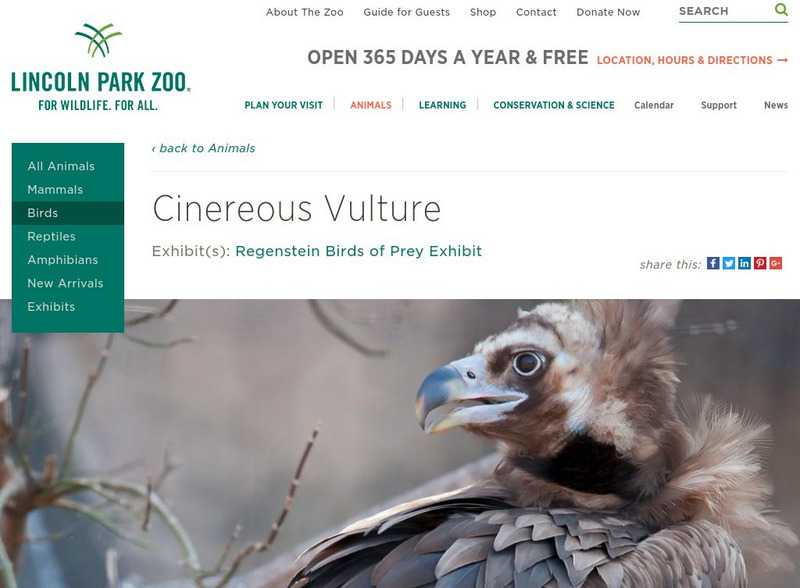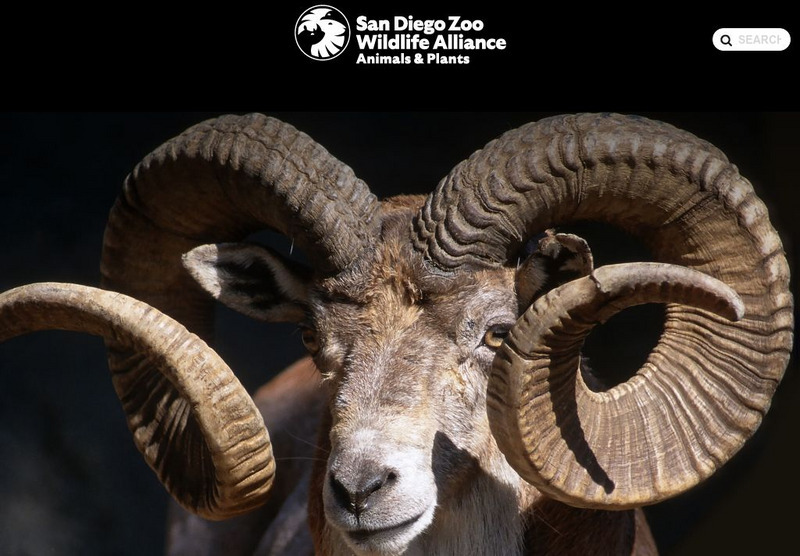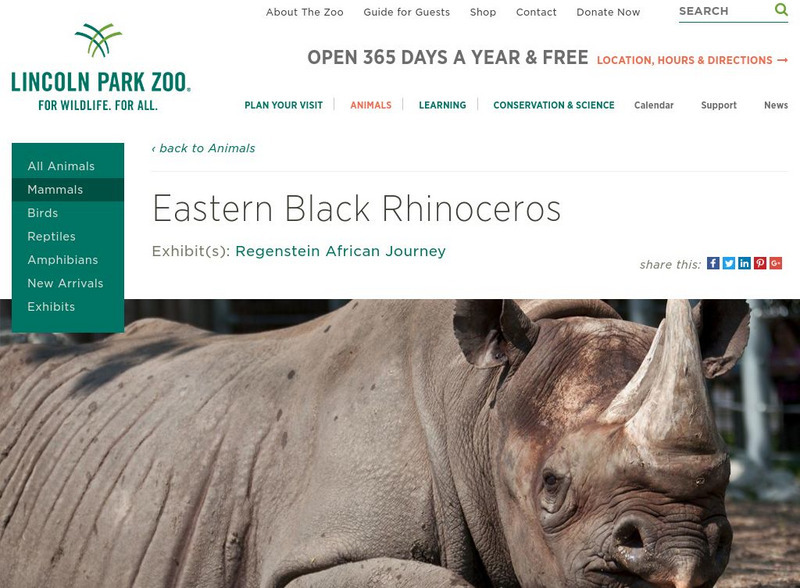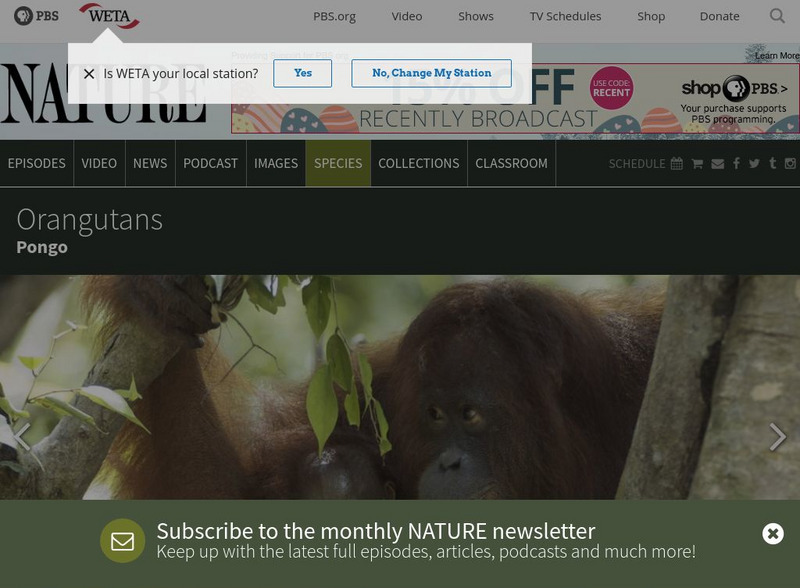Better Lesson
Better Lesson: Survival of the Fittest
Fins, gills, claws, wings, each has a special purpose in helping an animal to survive. Learners will look at how animals have different parts that help them to adapt to their habitat, and to avoid predators or capture prey. Included in...
Curated OER
National Park Service: Acadia National Park: Animals of Acadia [Pdf]
Discover the various types of animal habitats located in Acadia National Park. Learn about the special features that allow them to live in their habitat.
ClassFlow
Class Flow: Plant and Animal Habitats
[Free Registration/Login Required] This lesson explains plant and animal habitats with brilliant pictures and photos. It also includes discussion and non-Activote questions.
Other
Arizona Sonora Desert Museum : Animal Fact Sheet: Gray Fox
This fact sheet on the gray fox provides details on physical characteristics, adaptations, range, habitat, conservation, diet, and other extra-fun facts.
Lincoln Park Zoo
Lincoln Park Zoo: Grevy's Zebra
Learn the difference found in this species of zebra, where it is found in the wild, how it has adapted to its niche environment, what it eats, and its reproduction habits.
Lincoln Park Zoo
Lincoln Park Zoo: Cinereous Vulture
A detailed overview of the Cinereous Vulture. Overview includes a physical description, their niche and habitat in the wild, and their life history. Facts about special adaptations they have had to make in order to survive.
Lincoln Park Zoo
Lincoln Park Zoo: Amur or Siberian Tiger
This site provides detailed information on the Siberian Tiger. Information includes what they look like, where they live, what they eat, and how many cubs they have. Additional information about special adaptations they have.
Lincoln Park Zoo
Lincoln Park Zoo: Baringo Giraffe
This site about the Baringo Giraffe, provides information ranging from a detailed description to special adaptations that the giraffe has developed. A good site for student research.
Lincoln Park Zoo
Lincoln Park Zoo: Dwarf Crocodile
Offers great information of the West African Dwarf Crocodile. Information includes what they look like, where they are found, what they eat, and how often they reproduce. Special adaptations that the crocodile has made are also included.
Smithsonian Institution
Smithsonian Science Education Center: Showbiz Safari
Lights! Camera! Action! Our movie director needs your help! Help Walrus pick actors based on the traits that best fit the movie role. Which furry mammal will get the most wanted role in the blockbuster film "Paws"? Which water loving...
San Diego Zoo Global
San Diego Zoo: Goats
An in-depth description of goats, including their classification, appearance, habitat, adaptations, reproduction, diet, and other interesting facts. Also includes pictures, video, and sound bytes.
Penguin Science
Penguin Science: Penguins Marching Into the Classroom
Follow Adelie Penguin families as they raise their chicks. Daily pictures (November through January) from the penguin colony on Ross Island, Antarctica. are posted with data for students to keep a field journal. Inquiry classroom...
Lincoln Park Zoo
Lincoln Park Zoo: Black Rhinoceros
Provides a detailed description of black rhinoceros. Information offered ranges from their physical description to special adaptations that they have.
Lincoln Park Zoo
Lincoln Park Zoo: Western Lowland Gorilla
Use this site for information on the Western Lowland Gorilla. The information consists of special adaptations the gorilla has had to make, what it looks like, where it is found in the wild, what it likes to eats, and what its...
Lincoln Park Zoo
Lincoln Park Zoo: African Lion
A wonderful research tool for gathering information about the African Lion. Information that is given includes what it looks like, what it eats, where it lives, its life history. Additional information included is about its special...
Tramline
Virtual Field Trip: Temperate Forest Biome
Travel with your students on a Virtual Field Trip to learn about Temperate Forest Biomes. You will also discover many informative and interactive websites.
Enchanted Learning
Enchanted Learning: Polar Bears
Learn more about the polar bear when you visit this informative site that features a diagram of the polar bear and information on its diet, habitat, anatomy, reproduction and so on.
Alabama Learning Exchange
Alex: Creature Comforts
What do living things need to survive? In this unit, students explore different habitats and the adaptations made by living things to survive. Students will create a website matching an animal's adaptations to its environment. Then, they...
Denver Zoo
Denver Zoo: Cape Buffalo
The Denver Zoo features a comprehensive overview of the cape buffalo focusing on its habitat, range, adaptations, diet, physical characteristics, and more.
Alabama Learning Exchange
Alex: Surviving in the World!
After learning about the survival traits of the chameleon, students will work in groups to research the survival traits of other animals on the Internet and will create a slide show using the collected information to share with the...
PBS
Pbs Nature: Orangutans
Come and check out this awesome resource on orangutans. Students who need help narrowing their informational search will benefit from this clear and concise resource.
Lincoln Park Zoo
Lincoln Park Zoo: Barn Owl
An excellent account of the Common Barn Owl. This site provides information on the owl's description, status, habitat, niche, life history, as well as facts on special adaptations they have acquired.
Smithsonian Institution
National Museum of Natural History: Black and White Colobus
Brief overview of the black-and-white colobus monkey and accompanying photos demonstrate the physical adaptations that allow this animal to survive in its habitat.
Smithsonian Institution
National Museum of Natural History: Hall of Mammals: Prairie Dog
Brief illustrated overview of the prairie dog and an accompanying video demonstrate the physical adaptations that allow this animal to survive in its habitat.

![National Park Service: Acadia National Park: Animals of Acadia [Pdf] Primary National Park Service: Acadia National Park: Animals of Acadia [Pdf] Primary](https://d15y2dacu3jp90.cloudfront.net/images/attachment_defaults/resource/large/FPO-knovation.png)













